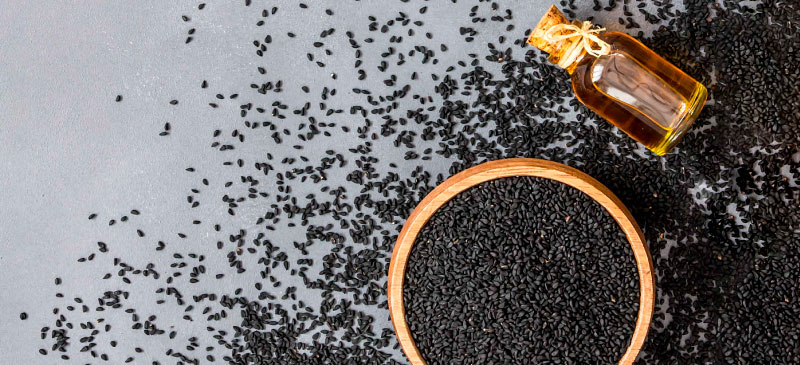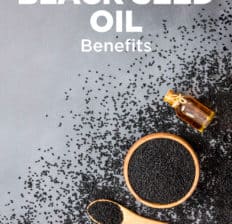This Dr. Axe content is medically reviewed or fact checked to ensure factually accurate information.
With strict editorial sourcing guidelines, we only link to academic research institutions, reputable media sites and, when research is available, medically peer-reviewed studies. Note that the numbers in parentheses (1, 2, etc.) are clickable links to these studies.
The information in our articles is NOT intended to replace a one-on-one relationship with a qualified health care professional and is not intended as medical advice.
This article is based on scientific evidence, written by experts and fact checked by our trained editorial staff. Note that the numbers in parentheses (1, 2, etc.) are clickable links to medically peer-reviewed studies.
Our team includes licensed nutritionists and dietitians, certified health education specialists, as well as certified strength and conditioning specialists, personal trainers and corrective exercise specialists. Our team aims to be not only thorough with its research, but also objective and unbiased.
The information in our articles is NOT intended to replace a one-on-one relationship with a qualified health care professional and is not intended as medical advice.
Black Seed Oil Benefits
October 4, 2024

If you take a look at the hundreds of scientific peer-reviewed articles that have been published about black seed oil benefits, one fact is clear: It may help the body overcome a number of health issues. No wonder this health-promoting oil has been used for thousands of years in traditional medicine.
In fact, today research demonstrates that black seed oil may aid health issues like asthma, hair loss and acne due to its anti-inflammatory and antibacterial properties. It may even help spur weight loss.
While more research in humans is required to confirm many of these benefits, the benefits of black seed oil and black seed is promising.
What Is Black Seed Oil?
Black seed oil is made from the seeds of the black cumin (Nigella sativa) plant — also called nigella seeds — which belongs to the ranunculus family (Ranunculaceae). The black cumin plant is native to southwestern Asia, the Mediterranean and Africa.
It has been grown for centuries for its aromatic and flavorful seeds that can be used as a culinary spice or as an herbal medicine.
This oil is also commonly called black cumin seed oil. Be careful, as black seed should not be confused with true cumin (Cuminum cyminum), black pepper, black sesame or black cohosh.
Quite possibly, the most promising research has been done connecting Nigella sativa to multi-drug-resistant bacteria. In a study conducted by Jawaharlal Nehru Medical College in India, researchers determined just how potent black seed oil is against certain superbugs and paired it against several antibiotics. According to the study, “Out of 144 strains tested, most of which were resistant to a number of antibiotics, 97 were inhibited by the oil of black cumin.”
A 2022 study of nigella seeds also showed antimicrobial activity against many different pathogenic bacterial strains.
The key to understanding the health benefits of black seed oils lies in the presence of three key natural phytonutrients: thymoquinone (TQ), thymohydroquinone (THQ) and thymol.
Benefits
1. Combats diabetes
According to a 2021 medical review, numerous clinical and animal studies have displayed the antidiabetic efficacy of black seeds and its major bioactive constituent thymoquinone. It concluded by saying that Nigella sativa may be considered a viable adjuvant therapy alongside antidiabetic medicines that sometimes cause adverse effects in some.
A 2019 medical review came to a similar conclusion. Black seed oil was shown to help stabilize blood sugar levels, including fasting blood glucose and blood glucose levels after a meal. It also helped increase insulin production while decreasing insulin resistance.
2. Aids weight loss
The Journal of Diabetes and Metabolic Disorders published a study systemically reviewing the literature for plants that have anti-obesity properties and discovered that black cumin seed oil was an effective natural weight loss aid.
A 2020 randomized clinical trial involving 45 women who were overweight or obese had each subject take 2,000 mg of black seed oil each day for eight weeks. The results included reduced appetite, decreased body mass index (BMI), weight loss, body fat loss and waist circumference loss.
A 2018 systematic review and meta-analysis of 11 placebo-controlled clinical trials also revealed the ability of a black seed supplement to help lower body weight.
Supplementation was shown to decrease BMI and waist circumference. It’s also important to note that there were no serious side effects of black seed supplementation reported in any of the studies.
More long-term studies on black seed oil for weight loss are needed. Consult with your healthcare professional before opting to supplement with this oil.
3. May improve skin
Externally applying black seed oil to certain conditions — like acne and eczema — is becoming more popular as a natural remedy. Does it have any value?
With its antimicrobial and anti-inflammatory properties, black seed oil does appear to help reduce acne. A 2020 study noted that a topical gel composed of black seed extract, used twice each day for two months, helped reduce acne severity by almond 80 percent. In particular, researchers noted how the number of acne lesions decreased compared to the control group.
In a study conducted by Iranian researchers, Nigella saliva was found as effective as the skin cream Betamethasone in improving quality of life and decreasing severity of hand eczema.
Black seed oil’s prominent compound thymoquinone also may stimulate tissue growth and help assist wound healing, according to studies.
4. May boost hair health, including growth
In addition to being a natural skin care aid, black seed oil also may benefit the hair. Since it contains nigellone, an antihistamine, it may help with hair loss due to androgenic alopecia or alopecia areata.
With its antioxidant, antibacterial and anti-inflammatory properties, it can also help the health of the scalp in general, discouraging dandruff and dryness, and improve hair health at the same time.
A 2020 study noted how daily use of a black seed oil–derived lotion for three months helped boost hair density and thickness in subjects dealing with hair loss. The 90 subjects used different seed oils for hair loss during the study, and black seed oil was considered the most effective.
5. May improve lung health and decrease asthma
A 2021 meta-analysis of four randomized controlled studies focused on black seed supplements used for asthma management. Through its anti-inflammatory benefits, the supplements appeared to help the asthma subjects.
A smaller study in 2020 dealt with asthma subjects who inhaled boiled black seed extract. It exerted a bronchodilatory effect and helped improve asthma markers, including lung function and respiratory rate.
Consult with your healthcare professional before using black seed oil for asthma or any other condition.
6. May help treat infections
Black seed oil may help resist methicillin resistant staphylococcus aureus (MRSA). Pakistan scientists took several strains of MRSA and discovered that each one was sensitive to N. sativa, showing that black seed oil may help slow down or stop MRSA from spreading out of control.
Compounds in black seed oil have also been analyzed for their antifungal properties. Published in the Egyptian Journal of Biochemistry & Molecular Biology, scientists tested thymol, TQ and THQ against 30 human pathogens. They discovered that each compound showed 100 percent inhibition for the 30 pathogens evaluated.
Thymoquinone was the best antifungal compound against all of the tested dermatophytes and yeasts, followed by thymohydroquinone and thymol. Thymol was the best antifungal against molds followed by TQ and THQ.
8. May improve male fertility
A randomized, double-blind, placebo-controlled clinical trial evaluated whether or not black seed oil could help infertile male subjects with abnormal sperm. The control group orally took 2.5 milliliters of black seed oil while the placebo group received the same amount of liquid paraffin twice a day for two months.
The results revealed that the black seed oil group had improvements in their sperm count as well as sperm motility and semen volume.
A systematic review published in 2015 in the Journal of Herbal Medicine also looked at the effects of black seeds on male infertility. The researchers reviewed studies that took place between 2000 and 2014, and overall, they concluded that black seed can “positively influence sperm parameters, semen, Leydig cells, reproductive organs and sexual hormones.”
9. May help balance cholesterol
A study using an animal model published in 2017 found that an aqueous extract of Nigella sativa not only had anti-diabetic effects on animal subjects, but also helped with cholesterol. After six weeks of giving the diabetic animal subjects low doses of black seed, total cholesterol, LDL (“bad”) cholesterol and glucose levels all came down while HDL (“good”) cholesterol increased.
An older randomized, double-blind, placebo-controlled trial was conducted with human subjects who had mild hypertension. There was a placebo group, a group that took 100 milligrams of black seed twice a day and a group that took 200 milligrams twice a day.
After eight weeks of this supplementation, researchers found that the people who took the black seed supplement had their systolic blood pressure and diastolic blood pressure decrease in “a dose-dependent manner.” Additionally, the black seed extract supplement caused a “significant decline” in both total cholesterol and LDL cholesterol.
10. May help fight cancer
Croatian scientists evaluated the antitumor activity of thymoquinone and thymohydroquinone using an animal model study and discovered that these two phytochemicals found in black seed oil resulted in a 52 percent decrease in tumor cells.
In vitro research revealed that thymoquinone, the most abundant bioactive component in oil from black seeds, helped induce apoptosis (programmed cell death) in leukemia cells, breast cancer cells and brain tumor cells.
A 2014 study noted that black seed oil may help prevent cancer through the regulation of molecular process. Much more research is needed before any conclusions can be drawn.
Supplement Options and How to Use
The premium option for black seed oil should always be 100 percent pure, therapeutic-grade and certified USDA organic.
Some companies also specify that their black seed oil is cold-pressed, which typically means that the oil is extracted from the Nigella sativa seeds without the use of heat from an external source resulting. Sometimes, cold-pressed oils are said to be more flavorful.
If you don’t like taking liquid supplements, you can also find black seed oil capsules.
Here are some ways to use black seed oil:
- Black cumin oil can be used topically, but always make sure to dilute it with a a few teaspoons of a carrier oil like coconut or almond oil.
- It can easily be added to homemade massage oils and lotions. For a warming massage, simply add one drop to one tablespoon of a carrier oil.
- To boost hair and scalp health, a few drops of oil can be added to hair products like shampoo and conditioner.
- If you enjoy making homemade fragrances with oils, it’s good to know that this oil has a peppery scent and works well as a base note.
- With its spicy flavor, a high-quality (100 percent pure, therapeutic-grade and certified USDA organic) black seed oil can be used in all kinds of recipes, from meat main courses to soups and stews. You can also add it to beverages like chai tea latte and smoothies.
The appropriate black seed oil dosage can vary by individual and health status. At this time, there is no standard dosage.
Risks and Side Effects
Black seed may cause an allergic rash when taken by mouth or applied to the skin. Before using black cumin oil topically for your skin and hair, it’s a good idea to perform a patch test to make sure you don’t have a negative reaction to the oil.
Always avoid your eyes and mucous membranes when using black seed oil.
When taken internally, black seed oil side effects may include upset stomach, vomiting, or constipation. For certain individuals, it may increase seizure risk.
Talk to your healthcare professional before using black seed oil if you are pregnant, breastfeeding, currently take any medication or have a medical condition (especially diabetes, low blood pressure or a bleeding disorder). If you’re taking black seed oil and have surgery scheduled, it’s recommended to stop taking it at least two weeks prior to your surgery date.
As with all oils, make sure to store your black seed oil away from heat and light and out of the reach of children.
Final Thoughts
- Black seed oil, also called black cumin oil, comes from the black cumin (Nigella sativa) plant and has been used for thousands of years in traditional medicine.
- Possible health benefits of black seed oil include help for diabetes, high blood pressure, high cholesterol and obesity. Black seed oil for hair and skin health is also popular.
- Always buy 100 percent pure, therapeutic-grade, certified USDA organic black seed oil/black cumin oil to get the safest and most beneficial version of this oil.







